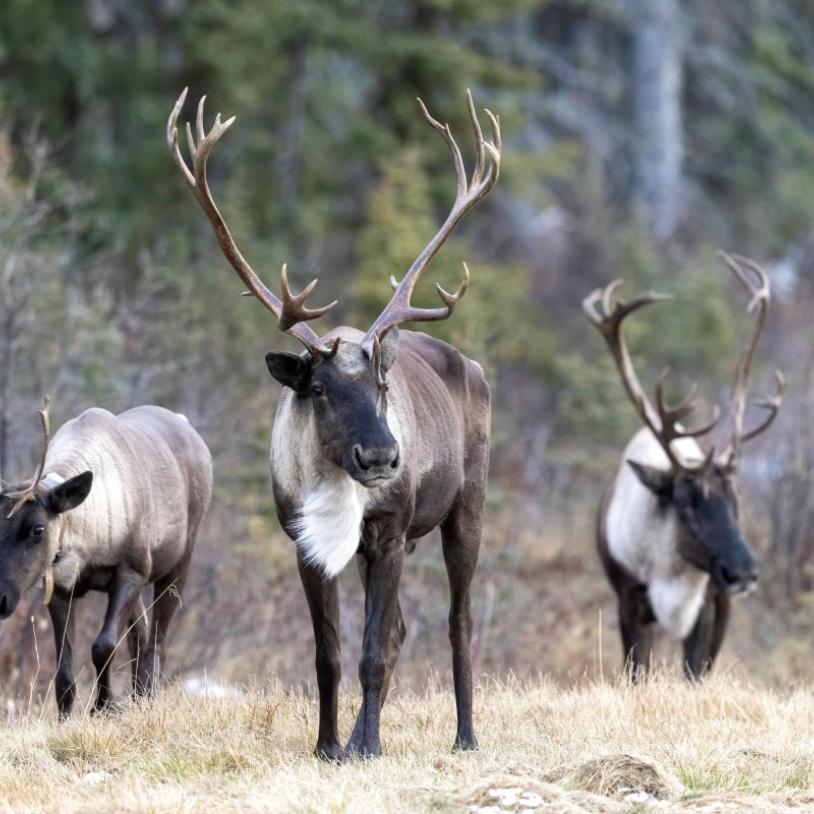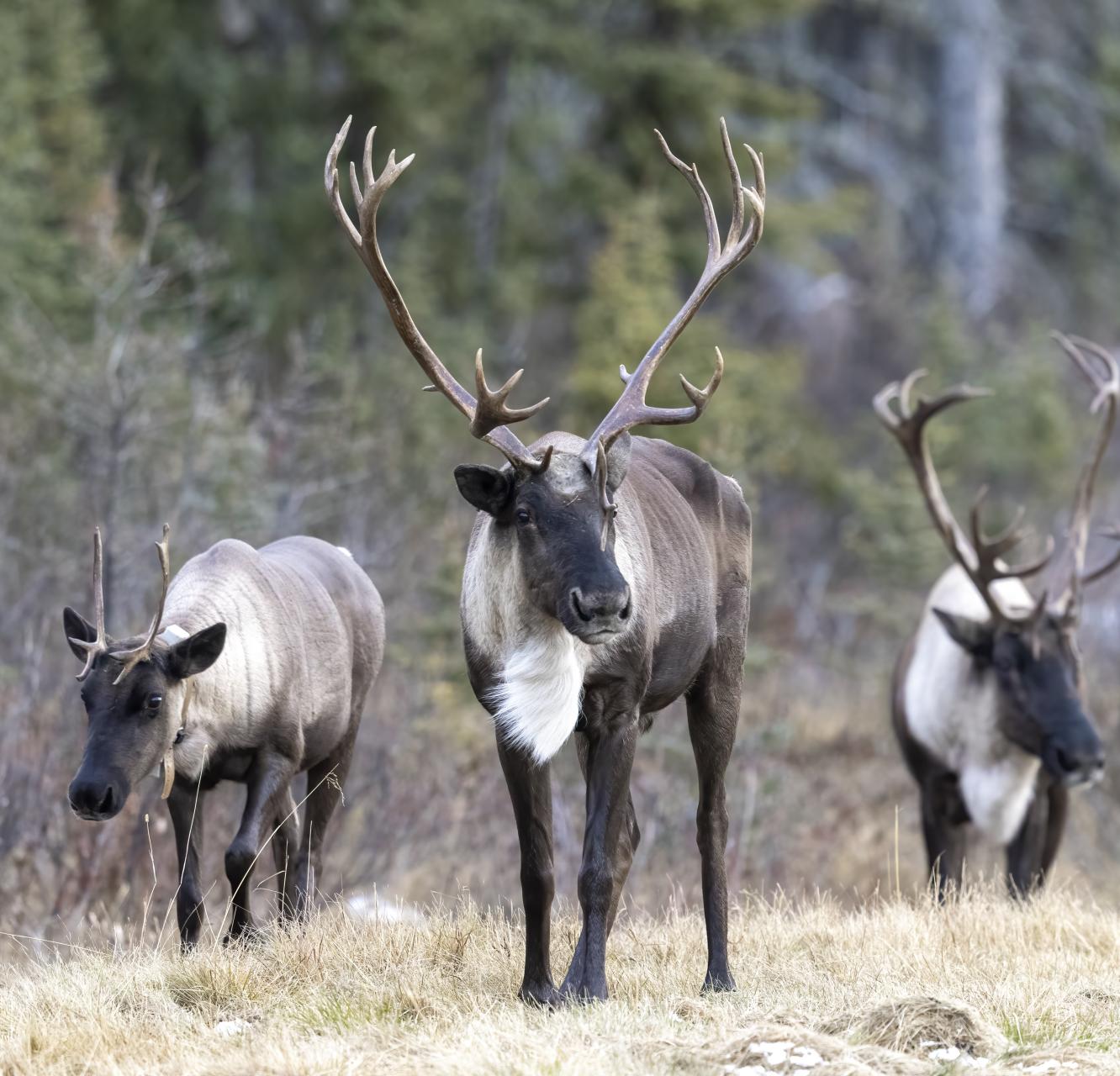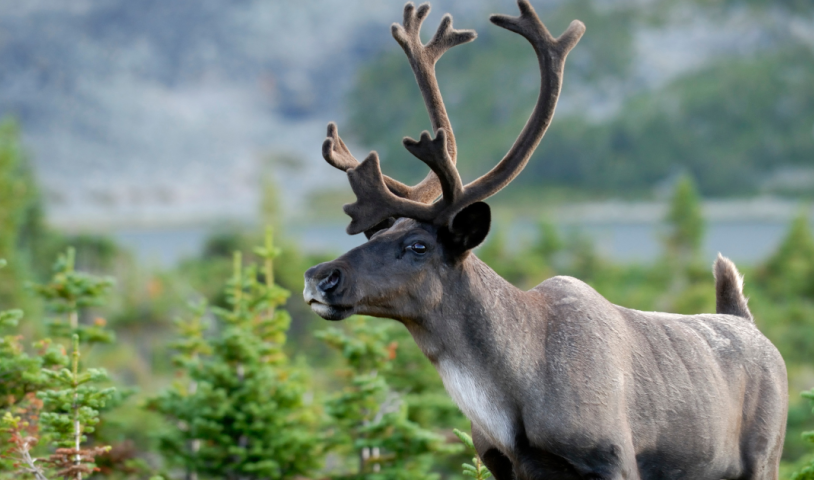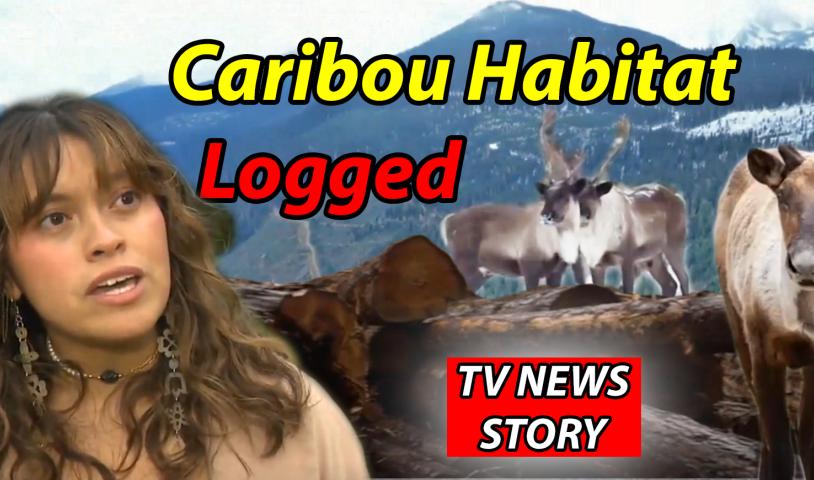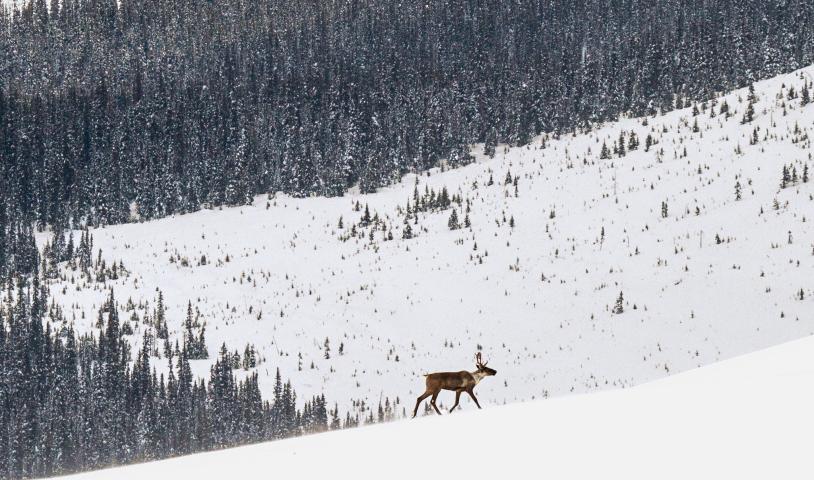Charlotte Dawe: Our obsession with killing some animals to save others
Tuesday, February 19, 2019
Saving a species from extinction will prevent death and suffering—or will it? Government strategies for saving species at risk are showing a troubling trend of relying heavily on killing one species to save another.
Wolves, cormorants, moose, and sea lions are just some animals that are currently being sacrificed and sniped out of existence to avoid the burden of tackling the true issue causing extinction: human destruction of the natural world.
Sixty percent of wildlife in Canada is declining and we’re blaming the remaining populations of species for it—and then we’re killing them. We shoot wolves from helicopters because they eat caribou; we kill sea lions because they eat chinook salmon; we’re hunting cormorants because they eat fish; and we kill moose because they attract wolves, which eat caribou. But what every politician and scientist is aware of, and what they’re not telling the general public, is that the competing or predator species are not the true problem. They’re simply a symptom of the real problem. The real problem 99.9 percent of the time is humans. We change ecosystems, which alters the way predator and prey species interact.
Governments and industry have done an incredible job of spotlighting predators and natural competitors as the culprits. The government repeatedly defend their actions by shaking their heads and saying: “No one wants to kill these wolves but we don’t have a choice.”
Wrong—they do have a choice.
The strategy of killing a species to save another is a short-term solution and, in most cases, it ultimately fails. Wolves, for instance, were the first to be blamed for the decline of caribou. Yes, a higher number of wolves are killing caribou. This is because industrial activities fragment the forest, making it easier for wolves to hunt and kill caribou. Instead of the government focusing on fixing the problem, which would include habitat restoration and protection, they kill wolves.
To “protect” caribou in the South Selkirk, South Peace, and North Columbia, 250 wolves were shot from helicopters from 2016 to 2018. Unfortunately, when wolves are shot it often doesn’t kill them right away, leaving them to an injury that slowly and painfully kills them. You may be wondering how many caribou were saved as a result of killing wolves in the South Selkirk. The answer is zero—the caribou herd is now extinct.
Even now that the South Selkirk herd is extinct, the government still fails to address habitat destruction as the real problem. Instead, they have identified a new species to blame for the South Selkirk caribou extinction: cougars. Government is currently exploring the possibility of a cougar cull.
From land to sea, the trend is the same. A sea lion and seal cull is also being discussed right now. The Pacific Balance Pinniped Society is hellbent on seeing these animals killed and they’re currently in talks with Fisheries and Oceans Canada. Their reasoning is that these natural predators are outcompeting the southern resident killer whales for chinook salmon. Surely it couldn’t be the massive commercial fishing operations, destroyed spawning grounds, vessel-congested habitat, or polluted water that’s contributing to the decline of chinook? No, it must be the seals.
There are many issues with this proposal. But the most obvious one is that transient killer whales rely on seals and sea lions for food. If we remove their food source, these whales will be next to join the species-at-risk list.
Humans fail to acknowledge the complexity of nature, and killing species can have drastic side effects on the ecosystem and can do more harm than good. If we are to ever restore wildlife and save species at risk, we must stop scapegoating innocent animals as a way to avoid humans taking the necessary action. Our destructive ways must be changed. This will take sacrifice and hard work, but it is the only way to ensure wildlife has a place on Earth.
Charlotte Dawe is a conservation and policy campaigner with the Wilderness Committee.
Read the original article published by the Georgia Straight by clicking here.
